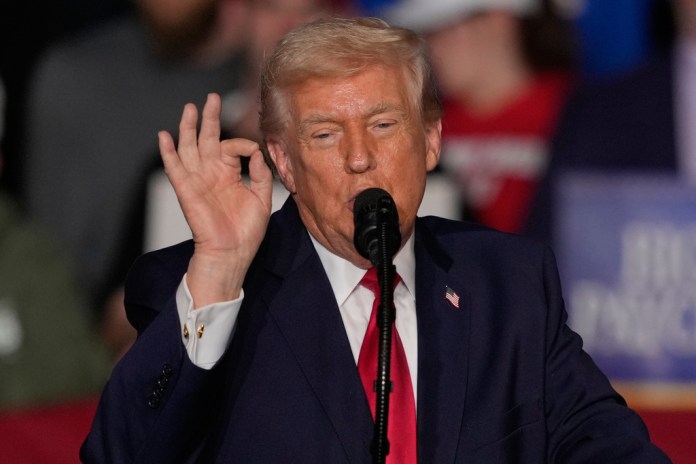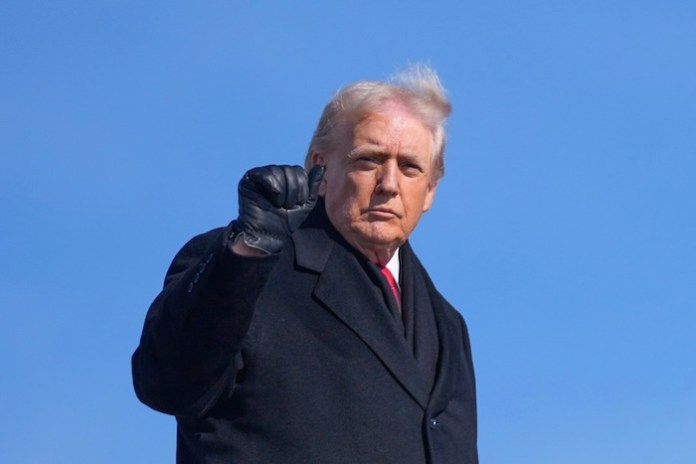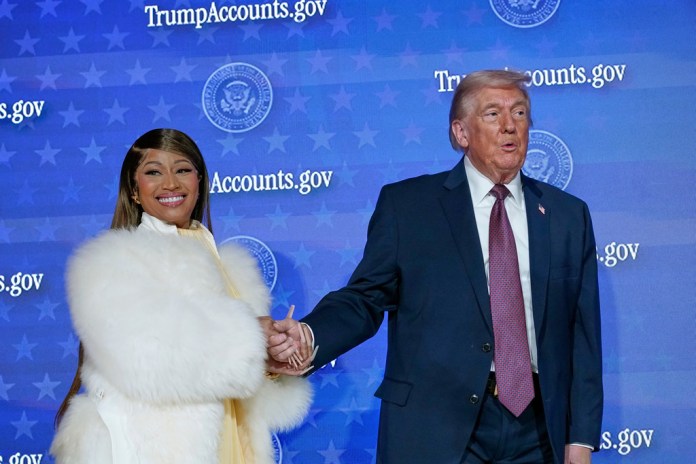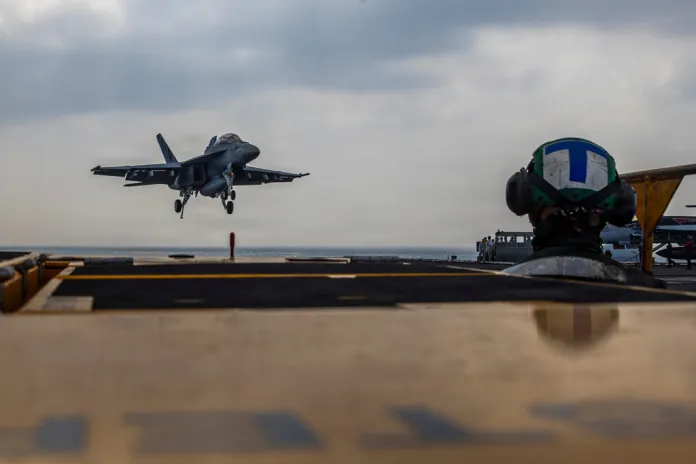Trump and Australian PM show united front before president’s meeting with Xi
President Donald Trump and Australian Prime Minister Anthony Albanese showcased a united stance against China in the Indo-Pacific region during albaneses visit too the White House.They reaffirmed the commitment to the AUKUS security pact, which involves the U.S., Australia, and the U.K. collaborating on nuclear-powered submarines as a countermeasure to China’s influence.Additionally, they signed an $8.5 billion agreement on critical minerals, aimed at reducing dependence on China amid its export restrictions.
Despite previous concerns about the pace of progress on the submarine deal, Trump emphasized advances and defended the strength of the U.S. naval fleet. The partnership is viewed as crucial for regional security and maintaining a strategic advantage over China, with experts highlighting Australia’s key role in America’s Indo-Pacific strategy.
on trade, Trump maintained tariffs on Australian imports, highlighting their importance in broader trade negotiations and economic leverage. Looking ahead, Trump is set to meet Chinese President Xi Jinping at an Asia-Pacific summit, focusing on trade talks and other issues including Taiwan, tho he refrained from discussing specifics.
the meeting marked a firm alliance between the U.S. and Australia in facing China’s growing regional assertiveness, balancing defense cooperation with strategic economic agreements.
Trump and Australian prime minister put on united front before president’s meeting with Xi
President Donald Trump and Australian Prime Minister Anthony Albanese demonstrated a united front against China in the Indo-Pacific as the United States and Australia recommitted to their nuclear submarine deal with the United Kingdom and signed a new one regarding critical minerals.
Trump and Albanese, whose previous meeting with Trump on the sidelines of the Group of Seven leaders summit this summer was postponed when the president departed early to order a strike against Iran’s nuclear facilities, signed an $8.5 billion critical minerals deal Monday at the White House.
The deal, negotiated during the past four to five months, comes as China increases its rare earth export controls against the U.S., despite agreeing to a tariff detente with the U.S. amid talks regarding a trade deal.
“We’ve had a very good relationship,” Trump said in the Cabinet Room of the U.S. and Australia. “We’ve been working on that for quite a while. In about a year from now, we’ll have so much critical mineral and rare earths that you won’t know what to do with them. They’ll be worth about two dollars.”
At the same time, concerns regarding the U.S.-Australia bilateral relationship have exacerbated since Trump’s inauguration after the Pentagon ordered a review of the $368 billion Australia-U.K.-U.S. nuclear-powered submarine agreement known as AUKUS.
Under the agreement, the U.S. had promised to sell three Virginia-class nuclear-powered submarines to Australia from 2032, with plans for the U.K. and Australia to build the submarines in the future as a deterrent against China in the Indo-Pacific. Australia ended a similar deal with France in order to buy the submarines from the U.S.
The review, conducted by Elbridge Colby, undersecretary of war for policy, has been undertaken to ensure it follows Trump’s America First principles and whether it would decrease the U.S. Navy’s own readiness.
Trump downplayed the latter on Monday, contending instead that progress regarding the AUKUS agreement had actually been going “too slowly.”
“We do actually have a lot of submarines, we have the best submarines anywhere in the world,” he said. “We’re building a few more currently under construction, and now we have it all set.”
The “success” of the AUKUS agreement “hangs in the balance and offers a way to energize America’s lackluster shipbuilding industry and bolster forward nuclear submarine presence in a way that gets Beijing’s attention,” according to Heritage Foundation national security senior research fellow Brent Sadler.
“Australia has been a great partner in shipbuilding and trusted ally that has bled with Americans in every war of the last 100 years,” Sadler told the Washington Examiner. “As the New Cold War with China heats up, expect to hear about how we work together in pushing back on China’s encroachment and poaching in the waters of the South and Central Pacific as well. Top of the list, how to better partner with Pacific Island nations.”
For American Enterprise Institute senior fellow Zack Cooper, “the near term danger for AUKUS is over” after speculation there could be problems for it.
“The United States is gaining substantially from AUKUS in the near term, since the first phase focuses on building out facilities that the United States can use in Western Australia,” Cooper told the Washington Examiner. “The more difficult question will come five years from now, when the United States has to decide whether to transfer Virginia-class submariners to Australia, but that is an issue for a future administration to address later.”
The other pressure point between the U.S. and Australia, like other economic and trading partners around the world, has been tariffs.
Australian imports into the U.S. face a 10% tariff, though 50% levies remain on steel and aluminum imports.
Trump indicated on Monday that he would not reduce his tariffs against Australia, irrespective of the U.S.’s trade surplus with the ally.
“The tariffs have been amazing because tariffs have been really a reason that I was able to settle almost all of the, you know, I’ve settled eight wars in eight months,” he said.
Trump and Chinese President Xi Jinping are expected to meet for the first time in person since the start of Trump’s second administration this week on the sidelines of the Asia-Pacific Economic Cooperation conference in South Korea, with their trade deal poised to dominate the sit-down.
Trump on Monday previewed that he would travel to China next year and that tariffs on China could rise to 155% on Nov. 1 without a trade deal.
“I think when we finish our meetings in South Korea, China, and I will have a really fair and really great trade deal together,” he said. “I want them to buy soybeans. They stopped buying our soybeans because they thought that was punishment, and it is punishment to our farmers, but we’re not going to allow that to happen.”
China has boycotted U.S. soybeans since the start of the trade war, after buying more than half the $24.5 billion in U.S. soybean exports in 2024.
But with Trump projecting confidence in the U.S.’s position compared to China regarding ship-building and artificial intelligence, the other top agenda item will be Taiwan amid disputed reports China is seeking concessions concerning the island as part of the trade deal with the U.S.
When asked by the Washington Examiner about the reports on Monday, Trump sidestepped, saying he was “not going to talk about that” before his meeting with Xi this week.
“We’re going to be talking about a lot of things,” he said. “I assume that’s going to be one of the things, but I’m not going to talk about that.”
In response to another question on Taiwan, Trump repeated that China “doesn’t want” to take Taiwan, even as Xi prepares militarily to do so, including setting deadlines for readiness.
“The United States is the strongest military power in the world by far — it’s not even close,” he said. “I think we’re going to get along very well as it pertains to Taiwan and others. Now, that doesn’t mean it’s not the apple of his eye, because it probably is, but I don’t see anything happening. We have a very good trade relationship.”
To that end, AEI’s Cooper underscored the importance of the likes of the AUKUS agreement to the U.S. regarding China in the Indo-Pacific.
ZELENSKY SURPRISED BY TRUMP TRUTH POST FOLLOWING MEETING BUT AGREES WAR MUST ‘STOP WHERE WE ARE’
“I see Australia as the southern anchor of America’s entire regional strategy, so it is a vital alliance that is only going to get more important,” he said. “But Washington is doing real damage to its standing in Canberra and the rest of Australia, which will create alliance problems in the long term if U.S. officials aren’t careful.”
" Conservative News Daily does not always share or support the views and opinions expressed here; they are just those of the writer."




